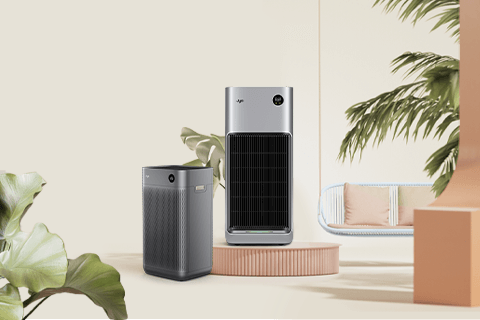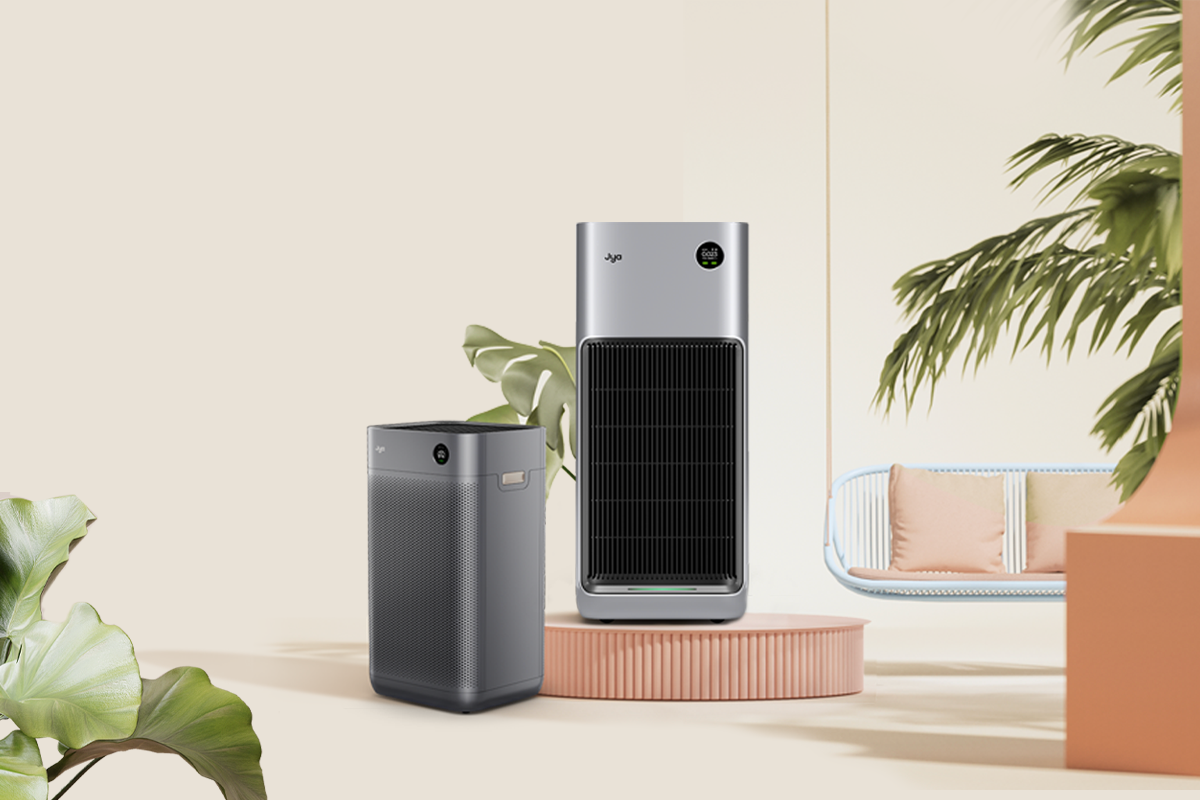Can household air purifiers protect you and your family from COVID-19?
As a result of the pandemic caused by the SARS-CoV-2 (COVID-19) virus, air purifiers have exploded in popularity around the world. Air purification quickly became a core focus in the fight against COVID-19, with the commercial airplanes, retail locations, and businesses being equipped with air purification systems to minimize the spread of the virus. Air purifiers have also been shown to be effective in reducing airborne COVID-19 in hospital settings.
To put it briefly, the short answer is yes: air filtration and purification does help fight COVID-19 and other airborne viruses, especially in small or contained spaces. Together with other best practices recommended by CDC and other public health agencies, such as social distancing and wearing masks, air filtration can reduce the possibility of airborne transmission of COVID-19.
How is the COVID-19 virus transmitted?
Viruses like COVID-19 are considered to be both airborne and aerosolized. This means that the virus is usually spread via respiratory droplets and other airborne particles, which can be breathed in at a distance over longer distances. Talking, coughing, and sneezing can introduce these particles into the air. This is most likely to be problematic when people are in close proximity, but the virus can remain suspended in the air for some time, especially indoors.
The majority of COVID-19 infections are caused by:
- Long-range transmission by aerosol: When an infected person exhales, they produce small respiratory droplets (≤5 microns in diameter). Airborne viruses that are smaller and aerosolized can remain in the air for long periods of time and travel far from their source. Air purifiers can be helpful for this form of transmission.
- Short-range droplet spray: When an infected person exhales (breathes, coughs, sneezes, sings, yells, or talks), respiratory droplets can spread the virus directly from person to person. These larger droplets (>5 microns in diameter) tend to fall rapidly from the air within seconds to minutes, so air purification is less effective at stopping this sort of transmission. Social distancing and the usage of protective masks are the recommended safeguard.
- Contact (direct or indirect): the virus can be spread by touching an object or surface that is infected by the virus, and then touching your mouth, nose, or eyes. Air purifiers are not helpful for this form of transmission, as they do not sanitize surfaces. Regular sanitization of surfaces is the recommended safeguard.
Can household air purifiers capture COVID-19 particles?
Some can, yes. But it’s important to consider particulate size. In the case of COVID-19, the size of the virus itself is estimated to be between 0.06 and 0.14 microns. The virus generally does not move on its own, but rather binds to other types of particles, such as respiratory droplets. These respiratory particles are generally larger than 1 microns in size.
What should I look for in an air purifier?
When thinking about COVID-19, the main consideration in an in-home air purifier is the filtration technology. Most air purifiers use HEPA filters to clean the air, but not all HEPA filters are created equal. Filters differ based on the size and number of microscopic particles they remove from the air passing through them. For example, HEPA H10 filters capture 85% of particles over 0.5 microns in size, whereas HEPA H13 filters capture 99.97% of particles over 0.3 microns in size. So, HEPA H13 filters are far more effective at capturing viruses, which are very small in size. Other stages of filtration are important as well. Some air purifiers include UV sanitization, which has been shown to neutralize both viruses and bacteria in the air.
Jya Fjord Series Air Purifiers
Our newest and most advanced air purifiers, Jya Fjord Series, provide multiple stages of filtration that target viruses and bacteria. Because the Jya Fjord Series includes the latest in HEPA H13 filtration, they are able to filter up to 99.99% of pollutants as small as 0.1 microns in size, which effectively captures airborne respiratory droplets and viruses. The Jya Fjord also includes UV sanitization, which helps fight against airborne viruses and bacteria.
While air purification is not a complete defense from COVID-19, the right purifier can be a powerful part of a comprehensive plan to protect you and your family from infection.

